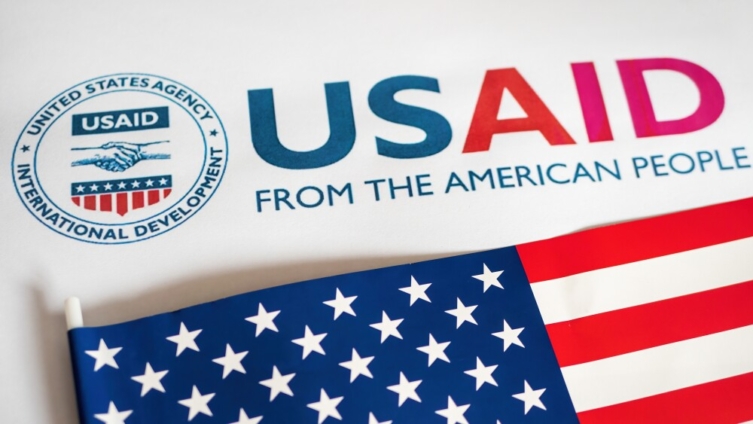
Audio By Carbonatix
The Laadi Centre for Peace Building and Security Analysis (LACPSA-Ghana) emphasises the importance of human security as a critical determinant of a country’s health. Following the suspension of USAID bilateral support to Ghana and Africa, many fear the continent will face unanticipated challenges. However, LACPSA-GHANA takes a different stance, arguing that this is an opportunity for Ghana—and other African nations—to thrive.
If Ghana commits to the production of just three key commodities—rice, corn, and soybeans—within six months, the country could potentially generate as much as, if not more than, the bilateral support of about $150 billion previously received from the USAID. This approach is feasible for other African countries as well, provided they adopt the right mindset and strategies.
Africa’s Unique Potential
Africa has a land area of 30.37 million square kilometres, giving it abundant natural resources, favourable weather conditions, and a ready labour force to produce these commodities at a lower cost while ensuring high yields and superior quality.
Many agricultural commodities in sub-Saharan Africa hold comparative advantages in global markets. With appropriate investments and partnerships, Africa could produce and sell these products on a large scale, tapping into the immense demand within the global economy. The full value chain of production, processing, and export could generate significant revenues, far exceeding the deficit created by the suspension of USAID bilateral support.
Global Market Opportunities
Data from World Bank reports illustrate the vast potential of these commodities:
- Rice: The global rice market is projected to grow from $292.39 billion in 2022 to $334.24 billion by 2030, with a compound annual growth rate (CAGR) of 2.2% from 2023 to 2030.
- Corn: Valued at $297.99 billion in 2023, the global corn market is expected to reach $410.02 billion by 2032, growing at a CAGR of 3.6% between 2024 and 2032.
- Soybeans: The global soybean market, valued at $200.37 billion in 2023, is projected to grow to $388.33 billion by 2034, with a CAGR of 6.2% from 2024 to 2034.
By securing just 10% of these global markets, African countries could significantly exceed the current levels of foreign aid.
Challenges and Solutions
While there are challenges, such as limited investment in technology, irrigation infrastructure, and processing facilities, these obstacles can be overcome. International Joint Ventures (IJVs) and partnerships could bridge the gaps, while support from research institutions would ensure the adoption of best practices.
By addressing these issues, Africa can mitigate deficits in critical sectors such as education and healthcare.
Conclusion
LACPSA-GHANA strongly urges the government of Ghana and industry stakeholders to seize this opportunity. Developing a robust agricultural system focused on key commodities could end food insecurity, bolster resilience against future shocks, and create a self-reliant, thriving nation.
This approach is not just a solution to the current funding gap but a sustainable pathway to economic independence for Ghana and Africa as a whole.
-
The author, Akunkel Musah is a conflict, security, climate change & global peace campaigner.
Latest Stories
-
Ghana is rising again – Mahama declares
5 hours -
Firefighters subdue blaze at Accra’s Tudu, officials warn of busy fire season ahead
5 hours -
New Year’s Luv FM Family Party in the park ends in grand style at Rattray park
5 hours -
Mahama targets digital schools, universal healthcare, and food self-sufficiency in 2026
5 hours -
Ghana’s global image boosted by our world-acclaimed reset agenda – Mahama
6 hours -
Full text: Mahama’s New Year message to the nation
6 hours -
The foundation is laid; now we accelerate and expand in 2026 – Mahama
6 hours -
There is no NPP, CPP nor NDC Ghana, only one Ghana – Mahama
6 hours -
Eduwatch praises education financing gains but warns delays, teacher gaps could derail reforms
6 hours -
Kusaal Wikimedians take local language online in 14-day digital campaign
7 hours -
Stop interfering in each other’s roles – Bole-Bamboi MP appeals to traditional rulers for peace
7 hours -
Playback: President Mahama addresses the nation in New Year message
8 hours -
Industrial and Commercial Workers’ Union call for strong work ethics, economic participation in 2026 new year message
10 hours -
Crossover Joy: Churches in Ghana welcome 2026 with fire and faith
10 hours -
Traffic chaos on Accra–Kumasi Highway leaves hundreds stranded as diversions gridlock
10 hours

